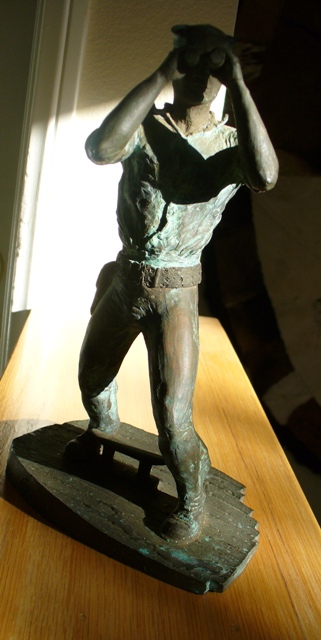I attempt to escape the reality of a runaway U.S. government by diving into the imaginative fiction and nonfiction flying off the shelves and gems I discover in the local library. If you feel inclined to diversion, consider a handful of audiobooks about history, biography, art, music and nature.
Lincoln in the Bardo, by George Saunders, surpasses expectations with its 166 voices narrating the fictitious events of the night Abraham Lincoln’s 11-year old deceased son was entombed in a Washington, D.C. crypt. The mournful father returned again and again through the night and held his son’s body, all the while observed by ghosts who can’t quite get themselves to give up the ghost and leave the cemetery. Adding to the mix, the author sprinkles real and imagined recollections of the grieving president throughout the tale.
The Judgement of Paris: the revolutionary decade that gave the world Impressionism by Ross King brims with research about 19th Century Paris and the lengths to which the established art world went to render Impressionist art irrelevant. In fascinating detail, I’m reminded of the force of a public’s preference for the good old past. The Paris Salons of the 1860s judged innovative masterpieces we now treasure to be laughable, crowds laughed out loud, and the derision drove artists to despair. Not much changes in the world of art … until everything changes.
The Outermost House by Henry Beston is a 1928 masterpiece of observation and ruminating about everything from rising stars and rough sea to the Coast Guard crews patrolling Cape Cod during the naturalist's solitary year spent living in a beach cottage. It is enchanting and bittersweet to see what he sees with such reverence for nature, considering those who would imperil our planet today.
Words Without Music: A Memoir by Philip Glass intrigued me for its revelations about creativity within the world of classical music and the singlemindedness of purpose it takes to move from being considered a fool to a genius. Glass has his detractors who miss the nuance of seemingly repetitive composition. As someone who sat mesmerized during a 1984 Los Angeles performance of his avant garde Einstein on the Beach, I think he reflects his time as much as Cole Porter nailed the 1920s with Rhapsody in Blue.
Born to Run, by Bruce Springsteen, narrated in his gravelly, inimitable voice, recalls a young life so brutal it is hard to imagine how the singer rose above circumstance to succeed so mightily. His reflections on lifelong creativity, collaboration and the music business are absorbing. He is a global phenomenon. That 80,000 concert-goers in Rome can sing his Born on the 4th of July to rival a homegrown crowd in the Garden State speaks to his influence on lives everywhere.
Born A Crime: Stories from A South African Childhood by Trevor Noah made me acutely aware of America’s global impact, and it isn’t always pretty. The comedian’s story rivals Springsteen’s in its brutal childhood reality. To be of mixed race in South Africa brings its own torture. Add to his story a poisonous dose of prejudice, officially sanctioned oppression and a steep climb to reach his current success as host of The Daily Show. My admiration for Trevor Noah’s sheer guts overcomes any reservations I felt about youthful choices made in an impoverished and violent setting.
Thomas Jefferson: the art of power by Jon Meacham: Being midway in listening to this historian’s measure of the man, his admirable traits and weaknesses, I’m reminded of Jefferson’s caution about linking a particular religion and the State in our new country. The author refers to Jefferson’s vision that freedom of religion “meant to comprehend, within the mantle of its protection, the Jew and the Gentile, the Christian and Mohammedan, the Hindoo and Infidel of every denomination.” Hear! Hear!
The fact is I cannot escape my time or the human condition. A world of people is hugely influenced by and potentially hurt by events within our shores, our music, culture, art, writings, social and political debate, corporate actions and government-sanctioned behavior.
Like the subject of these books, we can bring the world we envision into being only by dogged persistence: Into being like a Declaration of Independence, an end to a civil war, a Claude Monet rendering of a garden, a comic’s derision of deplorable behavior or a rock song lustily sung around the world.
On that note, I wish you courage to persist and a Happy 4th of July!
